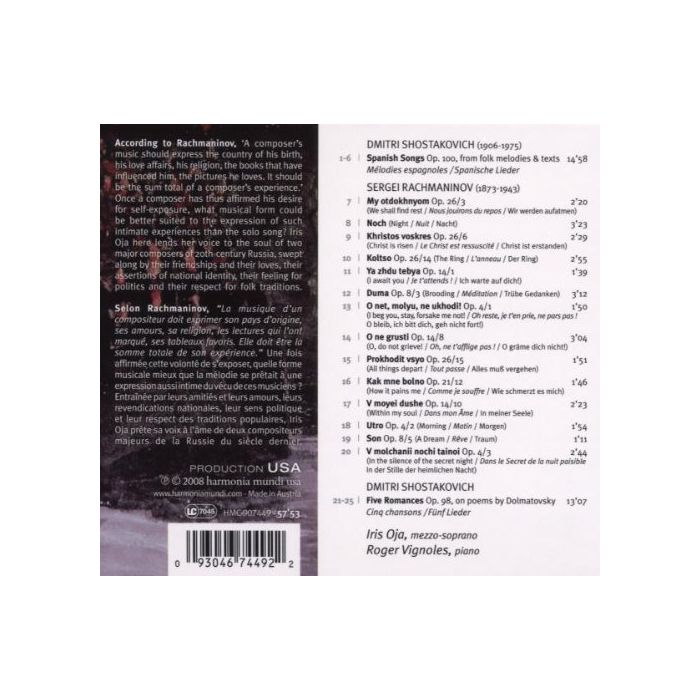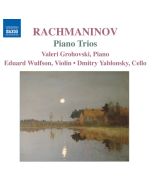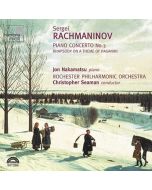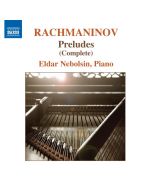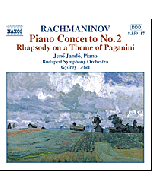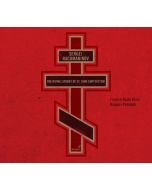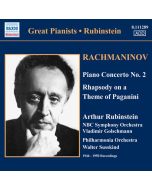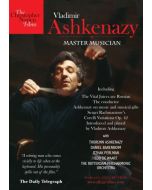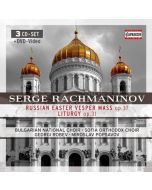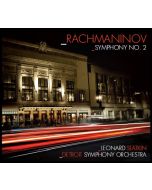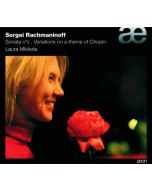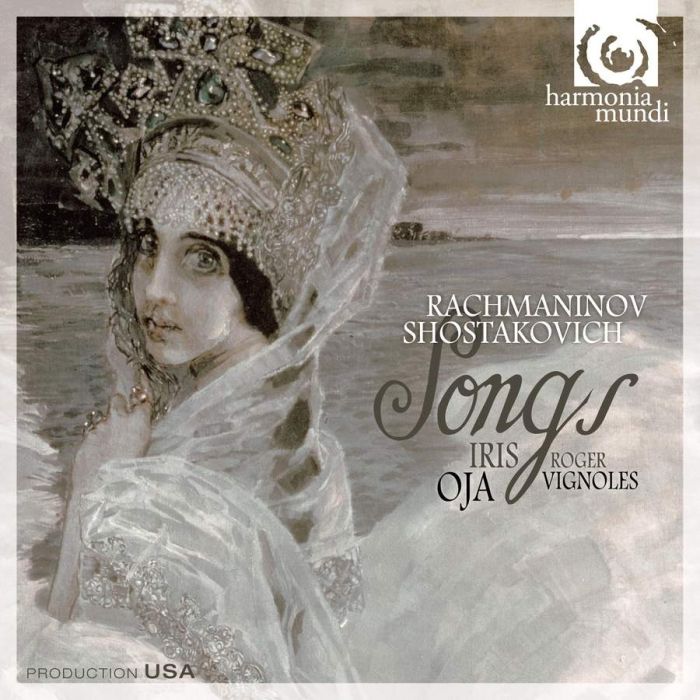
(Produkt nie został jeszcze oceniony)
kompozytor
różni kompozytorzy
tytuł
Shostakovich / Rachmaninov: Songs
pełny spis kompozytorów
Rachmaninov, Sergey, Shostakovich, Dmitry
wykonawcy
Oja, Iris, Roger, Vignoles
nr katalogowy
HMU 907449
opis
Nakład wyprzedany, ostatni egzemplarz At the beginning of the 18th century, Tsar Peter the Great had brought Russia out of isolation and opened the giant empire to the West; he had, in a way, ripped open the windows of the Russian house and swept away the old traditions with the wind of modern Europe. As a sign of his absolutist revolution he had founded his new capital St. Petersburg, the Venice of the North, in the swamps of northern Russia.
• Rachmaninoff: Christ is risen, Op.26 No. 6
• Rachmaninoff: How pained I am, Op. 21 No.12
• Rachmaninoff: I await you, Op.14 No. 1
• Rachmaninoff: In my soul, Op.14 No.10
• Rachmaninoff: Morning, Op. 4 No. 2
• Rachmaninoff: O niet molyu ni ukhodi, Op.4 No.1
• Rachmaninoff: Oh, do not grieve, Op.14 No. 8
• Rachmaninoff: Prokhodit vse, Op.26 No.15
• Rachmaninoff: The ring, Op.26, No.14
• Rachmaninoff: Thoughts, reflections, Op. 8 No. 3
• Rachmaninoff: V molchanii nochi taynoy, Op. 4 No. 3
• Rachmaninoff: We shall rest, Op.26, No. 3
• Shostakovich: Five Songs to lyrics by E Dolmatovsky Op. 98
• Shostakovich: Six Spanish Songs Op. 100
New music also came from the West, operas by Galuppi, Paisiello or Cimarosa were performed in the Court Theatre, Italian and French composers occupied the decisive positions and trained Russian musicians. At the end of the 18th century, however, the Russian soul was awakened in music, the rich traditions of Russian folk song were discovered, and national Russian music gradually began to develop.
The fight against Napoleon at the beginning of the 19th century finally brought Russia into the circle of European powers and also brought contact with the intellectual currents of the continent. In this way, Romanticism, with its emancipation of feeling and an unprecedented cult around the individual, reached Russia; it promoted the emergence of an intellectually educated class striving for intellectual independence at the universities and within the bourgeoisie, which was also forming in the Tsarist empire, and fertilized the process of an awakening of Russian national culture. It was in this atmosphere that the Russian Romantic song was created, in which poetry and music merge into an art that for the first time has the longing and feeling of the people as its content.
Sergei Rachmaninoff stood at the end of the epoch of Russian Romantic music, and an unusually open statement has been handed down from him, the artist who is reserved with personal confessions: "In the music of a composer, the country of his origin should be felt, his love stories, his religion, the books that have impressed him, the pictures he loves. It should be the sum of the composer's experiences." Nowhere does Rachmaninoff put this postulate more clearly into practice than in the 82 songs he composed between 1890 and 1916, which also reflect his stylistic development from his Moscow academic years to the border of the 1917 year of flight, when he fled from Russia, shaken by the October Revolution, to the United States.
In the face of a hostile cultural policy, Shostakovich always wrote his music in a balancing act between his own demands and the watchful eyes and ears of the censors. His songs, however, do not bear witness to this tension; they were written without the forced ambiguity of his great symphonic and chamber music compositions.
Works:
• Rachmaninoff: A dream, Op. 8 No. 5
• Rachmaninoff: Christ is risen, Op.26 No. 6
• Rachmaninoff: How pained I am, Op. 21 No.12
• Rachmaninoff: I await you, Op.14 No. 1
• Rachmaninoff: In my soul, Op.14 No.10
• Rachmaninoff: Morning, Op. 4 No. 2
• Rachmaninoff: O niet molyu ni ukhodi, Op.4 No.1
• Rachmaninoff: Oh, do not grieve, Op.14 No. 8
• Rachmaninoff: Prokhodit vse, Op.26 No.15
• Rachmaninoff: The ring, Op.26, No.14
• Rachmaninoff: Thoughts, reflections, Op. 8 No. 3
• Rachmaninoff: V molchanii nochi taynoy, Op. 4 No. 3
• Rachmaninoff: We shall rest, Op.26, No. 3
• Shostakovich: Five Songs to lyrics by E Dolmatovsky Op. 98
• Shostakovich: Six Spanish Songs Op. 100
nośnik
CD x 1
wydawca
Harmonia Mundi
data wydania
15.02.2008
EAN / kod kreskowy
093046744922
85,00 zł
Produkt dostepny w niewielkiej ilości.
Wysyłka w ciągu 3 dni roboczych
Darmowa wysyłka dla zamówień powyżej 300 zł!
Darmowy kurier dla zamówień powyżej 500 zł!
sprawdź koszty wysyłki